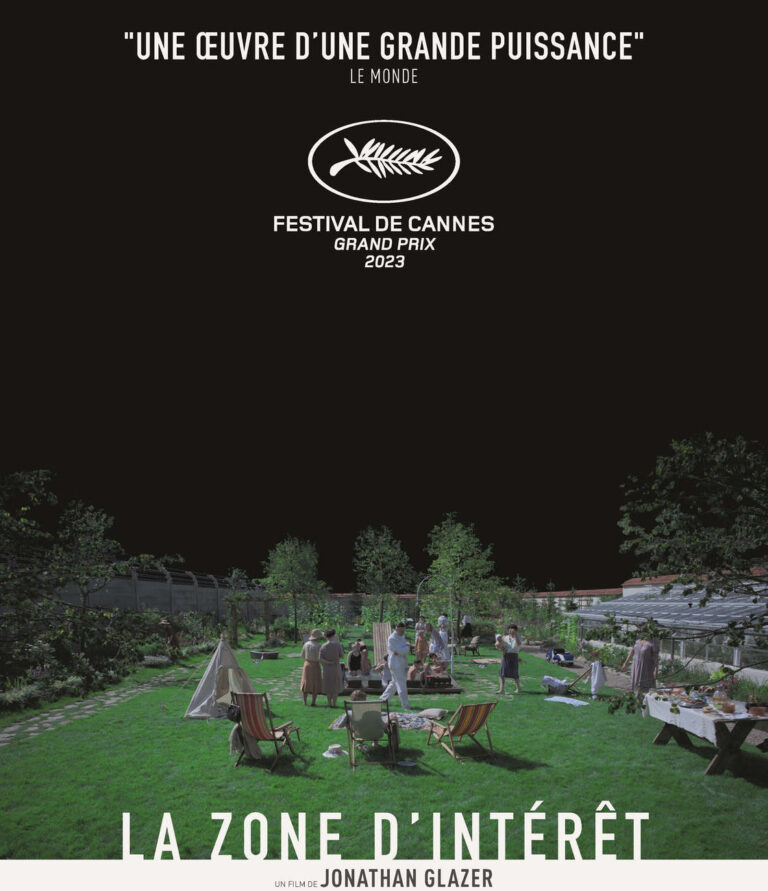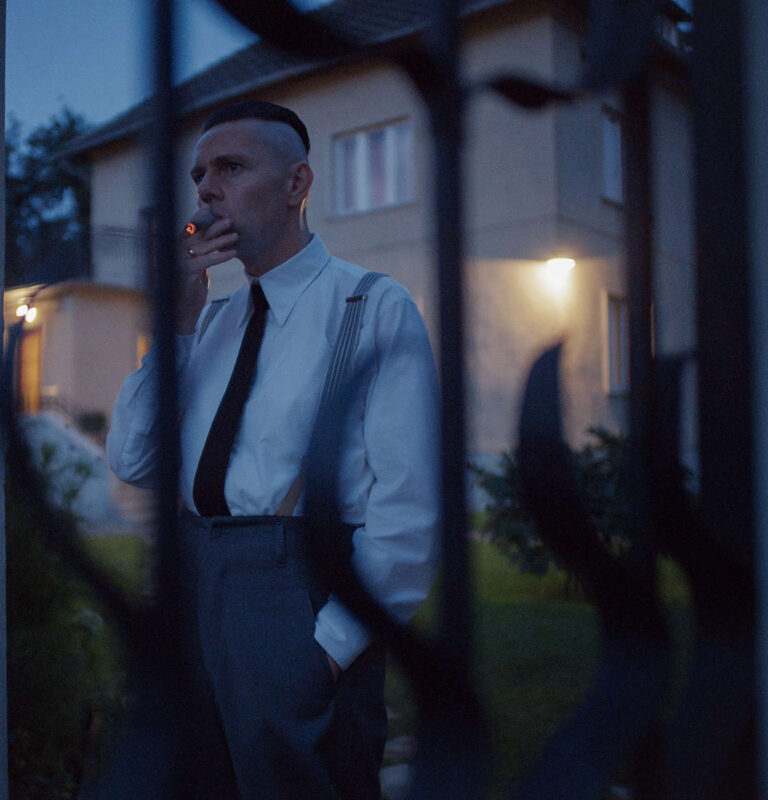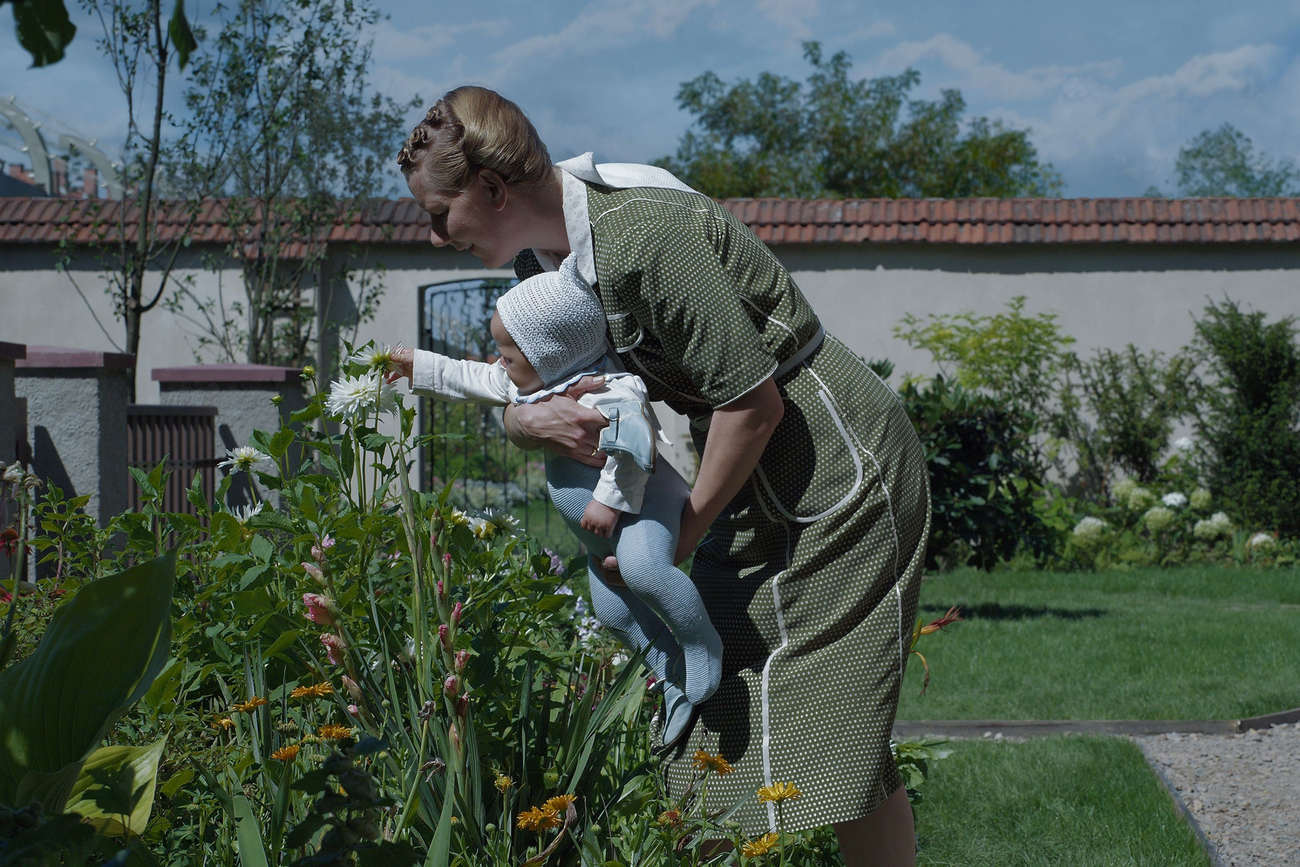Winner of the Grand Prix at the Cannes Film Festival, Jonathan Glazer’s film demonstrates by example “the banality of evil”, the quiet, carefree daily life of a Nazi family right next to the Auschwitz camp.

“It’s heavenly!” exclaims the mistress’s mother. Proudly, she takes visitors on a tour of the multicolored garden, the well-kept vegetable patch and the vast house occupied by her family – a privilege due to her husband’s rank – a private residence located in “The Zone of Interest”, the title of Jonathan Glazer’s film (out January 31). Admittedly, the property does have a few drawbacks, such as the barbed wire overhanging the wall at the bottom of the garden, the watchtower behind it and, a little further back, the large, red-hot chimney belching smoke into the sky… But in the end, this does little to disturb the peace and carefree lifestyle of the inhabitants on this side of the border.
Adapted from the novel by Marin Amis, which won the Grand Prix at the Cannes Film Festival and was subsequently presented at the Deauville Film Festival, “The Zone of Interest” is thus “a film based on an English novel performed in German and shot in Poland”, very close to the Auschwitz camp. For that’s where it’s set, in and around the comfortable family home of Auschwitz camp commandant Rudolf Höss (played by Christian Friedel), a house run by his wife Hedwig, played by Sandra Hüller (who also played the accused woman in Justine Triet’s Palme d’Or winner “Anatomy of a Fall”).
Jonathan Glazer (“Under the Skin”, “Sexy Beast”, “Birth”) films the daily life of a Nazi family right next door to an extermination camp, sometimes using surveillance cameras and hidden cameras. Winters are cold in Poland, but here we have heating, a bathroom and Polish staff; the grass is green in the garden, where ashes from “next door” are used as fertilizer; the children enjoy the swimming pool; the ladies chat in the living room with a cup of tea, and choose from a bag of clothes dropped off. Hedwig, the “Queen of Auschwitz”, takes on a beautiful fur coat.
What we don’t want to see

Meanwhile, in the offices, engineers present plans for an extermination machine, and the patent for a circular crematorium is mooted. But as powerful as he was, the Commandant was a mere executive with benefits, but one who could be moved at the whim of his boss, who was soon to be transferred against his will. The Höss family would then have to leave their “paradise”, which would greatly upset Madame, who wants to keep her house, her comforts, her garden… which her own mother preferred to leave discreetly, undoubtedly disturbed by the nearby night-time rumble, barking dogs, patrols…
And above all, by what we don’t see, or don’t want to see. Like the Major, blindfolded before discovering his birthday present (a canoe). “The Jews are on the other side of the wall”, says Hedwig, and so throughout the film we remain on this side, seeing nothing of the inside of the camp, the horror, the “mechanized genocide”, the atrocity, the “final solution”…
Jonathan Glazer demonstrates “the banality of evil” by example, the indifference of neighbors to what is happening at the bottom of their garden. If the expression “zone of interest” defined a forbidden perimeter, this cinematic “zone of interest” can only arouse unease, disturbing, chilling, clinical, upsetting, right up to the finale, nowadays, where cleaning crews go about their daily work in the Auschwitz “museum”.
Patrick TARDIT
The Zone of Interest”, a film by Jonathan Glazer (out January 31).

